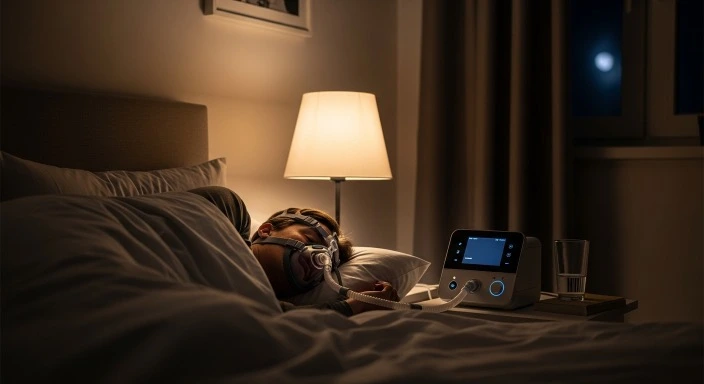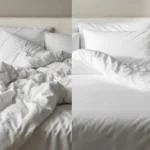Is sleep apnea a disability
Sleep apnea can make every night feel like a battle and every morning a struggle. If you’ve ever woken up exhausted no matter how long you slept, gasped for air during the night, or felt like your brain is running on low power all day — you’re not alone.
But for many people, sleep apnea doesn’t just cause fatigue, it can affect work performance, focus, and even emotional well-being. That’s why a big question often comes up:
Is sleep apnea considered a disability?
In this article, we’ll explore what sleep apnea really is, how it impacts daily life, what qualifies as a disability, and how the Social Security Administration (SSA) views it. By the end, you’ll have a clear understanding of where sleep apnea fits in the disability spectrum — and what steps you can take if it’s affecting your life or career.
Is sleep apnea a disability
What Is Sleep Apnea?
Sleep apnea is a sleep disorder that causes repeated interruptions in breathing during sleep. These pauses can last several seconds or longer and may happen dozens or even hundreds of times per night.
The most common form is obstructive sleep apnea (OSA) — caused when the throat muscles relax too much, blocking airflow. Other types include central sleep apnea (when the brain doesn’t send proper signals to breathing muscles) and complex sleep apnea (a combination of both).
Symptoms can include:
- Loud snoring
- Gasping or choking during sleep
- Daytime sleepiness
- Difficulty concentrating
- Morning headaches
- Mood changes or irritability
Over time, untreated sleep apnea can increase the risk of heart disease, high blood pressure, stroke, and diabetes, according to research from the American Heart Association.
How Sleep Apnea Affects Daily Life
For some people, sleep apnea is mild — frustrating but manageable. For others, it’s life-altering. Constant fatigue can make it hard to concentrate, operate machinery, drive safely, or even stay awake during meetings.
Cognitive issues are common because poor sleep directly affects memory and focus. Physically, you might feel like your body never fully recharges. Emotionally, you may become more anxious or irritable due to chronic exhaustion.
This constant drain can impact your ability to perform at work — and in severe cases, it can meet the SSA’s definition of a disability.
Is sleep apnea a disability
What Qualifies as a Disability?
Before answering whether sleep apnea qualifies, it’s helpful to understand what the Social Security Administration (SSA) considers a disability.
According to the SSA, a condition must:
- Prevent substantial gainful activity (work), and
- Last or be expected to last at least 12 months or result in death.
Sleep apnea itself isn’t explicitly listed as a qualifying disability under SSA’s “Blue Book,” but that doesn’t mean it can’t qualify. It depends on how severe your symptoms are and whether they cause related complications that meet SSA listings.
When Sleep Apnea May Qualify as a Disability
Sleep apnea can qualify if it leads to or worsens other medical conditions that do appear on SSA’s list, such as:
- Chronic heart failure
- Pulmonary hypertension
- Coronary artery disease
- Cognitive disorders or brain damage from hypoxia (low oxygen)
If your doctor documents that sleep apnea causes serious fatigue, memory issues, or heart complications, and you can’t sustain full-time work, it can strengthen your claim.
The U.S. National Library of Medicine explains how repeated oxygen drops from sleep apnea can lead to long-term cardiovascular and neurological issues.
Medical Evidence the SSA Looks For
If you apply for disability benefits, the SSA needs comprehensive medical proof. Common documentation includes:
- Polysomnography (sleep study) showing oxygen levels, breathing interruptions, and apnea severity
- CPAP or BiPAP usage reports (demonstrating treatment adherence)
- Doctor’s notes detailing daytime sleepiness, attention deficits, and safety risks
- Work records showing absences or performance issues related to fatigue
The SSA often evaluates your case under related listings such as Chronic Pulmonary Insufficiency (3.02) or Cardiovascular Impairments (4.00).
Types of Sleep Apnea and Disability Implications
1. Obstructive Sleep Apnea (OSA)
OSA is the most common and usually linked to airway collapse during sleep. It can vary from mild snoring to severe oxygen deprivation.
If severe OSA leads to heart disease, cognitive decline, or safety-related work impairment, it can support a disability claim.
2. Central Sleep Apnea (CSA)
CSA originates in the brain rather than the airway. It often coexists with neurological conditions or heart failure, which may strengthen eligibility.
3. Complex or Mixed Sleep Apnea
When both OSA and CSA appear together, symptoms can be intense — including profound fatigue and cognitive dysfunction — making it more likely to interfere with employment.
Cognitive and Emotional Impact of Sleep Apnea
Chronic sleep deprivation changes how your brain functions. Studies show that severe sleep apnea reduces gray matter density in areas responsible for attention and decision-making.
This explains why people with sleep apnea may:
- Struggle with short-term memory
- Have slower reaction times
- Feel more anxious or depressed
According to a NIH article, untreated sleep apnea can even accelerate cognitive decline in older adults .
These effects may indirectly meet SSA’s definition of “neurocognitive impairment,” depending on their impact on work function.
Treatment Options and Their Role in Disability Evaluation
Is sleep apnea a disability

Is sleep apnea a disability
The SSA expects applicants to pursue treatment before granting disability benefits. Common interventions include:
- CPAP or BiPAP therapy: Continuous airflow to prevent airway collapse.
- Weight management: Obesity is a common factor in OSA.
- Oral appliances: For mild to moderate apnea, repositioning the jaw or tongue.
- Surgery: In rare cases, to remove tissue or correct structural issues.
If you’ve tried these but still experience debilitating symptoms, that documentation helps demonstrate the severity of your condition.
The Social Security Disability (SSD) Application Process
Applying for benefits can be overwhelming, but here’s the simplified version:
- Collect medical documentation: Sleep study reports, treatment history, and doctor evaluations.
- Include supporting evidence: Statements from employers or coworkers about your performance issues or excessive fatigue.
- Submit your claim online via the SSA website or through a disability attorney.
- Be prepared for a denial: Many initial claims are rejected; appeals are common and often successful with added evidence.
Patience and persistence are key — and professional assistance can significantly improve your odds.
Sleep Apnea and Other Health Conditions
Sleep apnea rarely exists in isolation. It often appears alongside other chronic issues that strengthen a disability claim, including:
- Obesity and metabolic syndrome
- Type 2 diabetes
- Heart arrhythmias
- High blood pressure
- Depression and anxiety
If your sleep apnea worsens another condition or vice versa, document both — the combined effects matter to the SSA.
Lifestyle Adjustments That Support Treatment
Even if your condition doesn’t qualify as a disability, improving sleep apnea symptoms can drastically enhance quality of life.
Try:
- Maintaining a healthy weight
- Avoiding alcohol or sedatives before bedtime
- Sleeping on your side instead of your back
- Keeping consistent sleep hours
- Using your CPAP machine every night
Pairing these changes with treatment improves long-term outcomes and may prevent secondary health issues.
Can You Work With Sleep Apnea?
Many people can — but it depends on the severity.
If you experience mild symptoms and respond well to treatment, work performance usually rebounds. However, severe untreated sleep apnea can make jobs requiring alertness or focus (like driving, machine operation, or night shifts) unsafe.
Employers are required under the Americans with Disabilities Act (ADA) to make reasonable accommodations — such as flexible schedules or daytime shifts — if your condition significantly limits your ability to perform certain tasks.
Key Takeaways
- Sleep apnea isn’t automatically a listed disability, but its complications can qualify.
- Documentation from your doctor is essential.
- The SSA looks for evidence that your condition prevents substantial gainful activity despite treatment.
- If your symptoms are severe, don’t hesitate to seek medical and legal guidance for a disability claim.
The Takeaway
Sleep apnea may not always meet the technical criteria of a disability, but its effects are serious and deserve respect. It can drain your energy, impair concentration, and threaten your health.
Whether you’re considering a disability claim or simply looking to improve your quality of life, early diagnosis and treatment are critical.
If you’re unsure where to start, talk to your doctor about scheduling a sleep study — it’s the first step toward getting the rest and relief you deserve.







